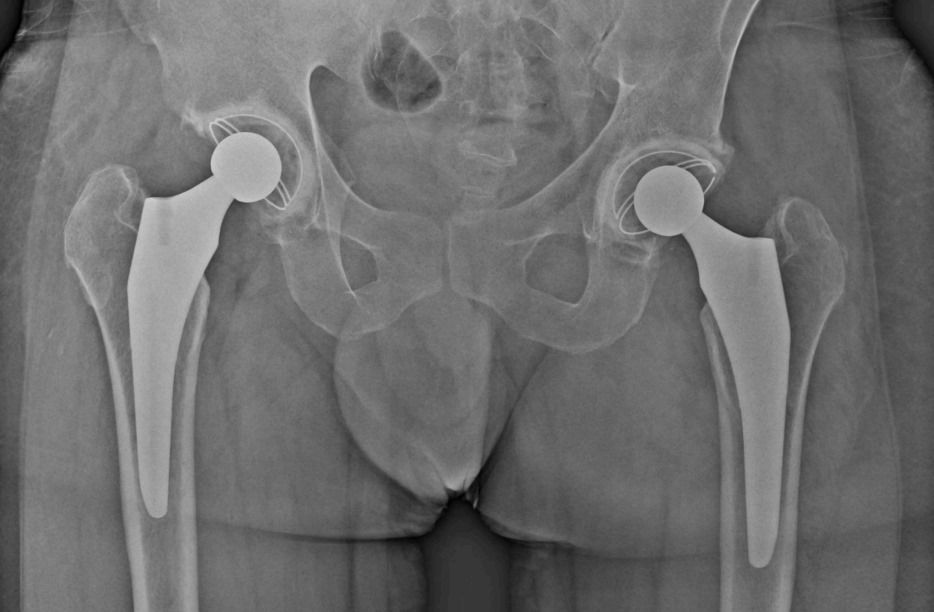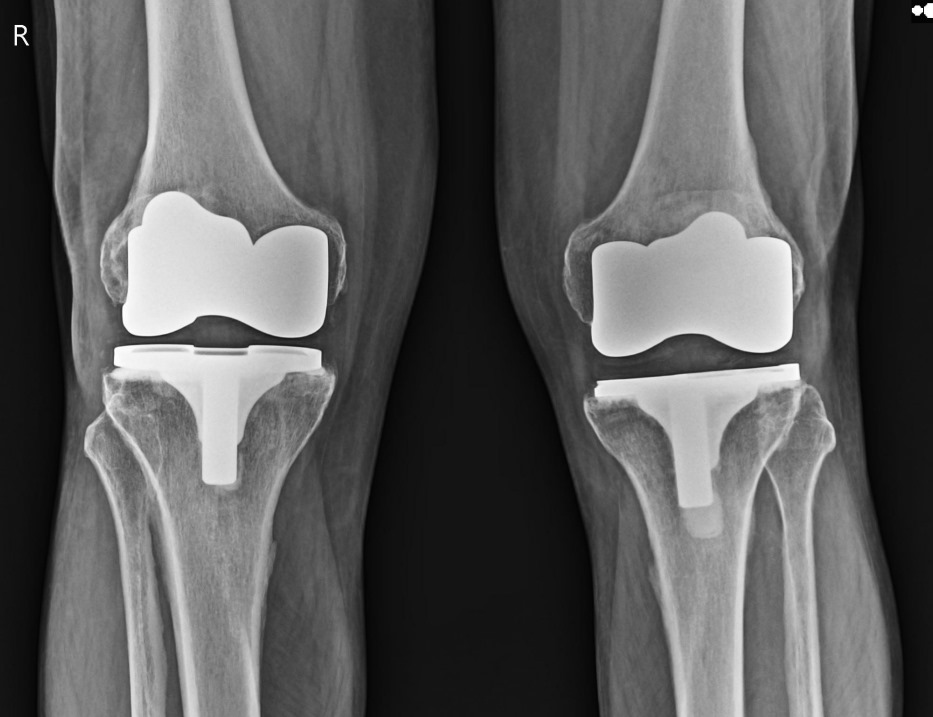Joint Replacement Surgery
Medical Laboratory And Specialists Services
What is Joint Replacement Surgery?
Joint replacement surgery is a surgical procedure that involves removing the damaged or diseased portions of a joint and replacing them with artificial components. This transformative procedure, also known as arthroplasty, involves replacing damaged or arthritic joint surfaces with artificial implants, allowing patients to experience significant pain relief, improved joint function, and enhanced mobility.
The implants, typically made of metal, plastic, or ceramic materials, are designed to replicate the natural structure and function of the joint. During the surgery, the surgeon makes an incision to access the affected joint. The damaged or arthritic joint surfaces are then carefully removed using special surgical instruments. The surgeon prepares the remaining bone surfaces to receive the artificial implants.
Joint replacement surgery is commonly performed on weight-bearing joints such as the hip and knee, as well as other joints like the shoulder and elbow, to alleviate pain and restore joint function. It has revolutionized the field of orthopaedic medicine, offering individuals suffering from debilitating joint conditions a chance to regain mobility and improve their quality of life.
Applications of Joint Replacement Surgery
Joint replacement surgery has demonstrated remarkable success in treating a range of joint conditions. The most common applications include:
Hip Replacement:
Hip replacement surgery is widely performed to address painful hip joint conditions such as AVN, arthritis, deformity of the femoral head or acetabulum, chronic dislocation, rheumatoid arthritis, and hip fractures. The damaged hip joint is replaced with an artificial ball-and-socket implant, restoring smooth movement, reducing pain, and improving overall hip function.
 (Bilateral total hip replacement in a 28 year old with avascular necrosis of femoral head)
(Bilateral total hip replacement in a 28 year old with avascular necrosis of femoral head)
Knee Replacement:
Knee replacement surgery is primarily used to treat severe knee arthritis, which causes pain, stiffness, and limited mobility. The procedure involves replacing the damaged knee joint surfaces with metal and plastic implants, restoring joint function and providing relief from chronic knee pain.

(Bilateral total knee replacement in an 70 year old with osteoarthritis knee)
Shoulder Replacement:
Shoulder replacement surgery is employed to alleviate shoulder pain and restore joint function affected by conditions like osteoarthritis, rheumatoid arthritis, and rotator cuff tears. The damaged portions of the shoulder joint are replaced with artificial components, enabling improved shoulder mobility and pain relief.
Elbow Replacement:
Elbow replacement surgery is less common but can be beneficial for individuals with severe elbow arthritis or joint trauma. It involves replacing the damaged joint surfaces with artificial implants, providing pain relief and restoring elbow function.
What are the benWhat are the benefits of Joint Replacement Surgery?efits of Hand Surgery?
Joint replacement surgery offers numerous life-changing benefits for patients, including:
Reduced Pain:
Joint replacement surgery is highly effective in alleviating chronic joint pain caused by arthritis or other degenerative conditions. By replacing the damaged joint surfaces with smooth artificial components, the procedure significantly reduces pain and discomfort, allowing individuals to engage in activities they were previously unable to perform.
Improved Joint Function:
The artificial implants used in joint replacement surgery are designed to closely mimic the natural joint structure and movement. As a result, patients experience improved joint function, enhanced mobility, and a restored range of motion. They can perform daily activities with greater ease and participate in physical activities they may have been unable to enjoy before the surgery.
Enhanced Quality of Life:
Joint replacement surgery has a profound impact on the overall quality of life for patients. The reduction in pain and improved joint function enable individuals to resume activities they once had to avoid, such as walking, climbing stairs, gardening, and playing sports. This restoration of mobility and independence contributes to an improved sense of well-being, increased confidence, and a more active lifestyle.
Long-Term Durability:
Joint replacement implants are designed to be highly durable, allowing patients to enjoy the benefits of the surgery for many years. With advancements in implant materials and surgical techniques, the longevity of joint replacements has significantly improved, offering patients long-term relief and functional improvement.
Minimally Invasive Techniques:
In recent years, minimally invasive approaches have been developed for joint replacement surgery. These techniques involve smaller incisions and specialized instruments, resulting in less tissue damage, reduced blood loss, and faster recovery times. Minimally invasive joint replacement surgery offers patients the benefits of smaller scars, decreased postoperative pain, and a quicker return to normal activities.
Customized Implants:
With advancements in technology, joint replacement surgery now offers the option of customized implants. These implants are specifically designed to match the patient’s anatomy, providing a better fit and improved joint function. Customized implants can result in enhanced stability, reduced wear and tear, and improved long-term outcomes.
Multidisciplinary Care:
Joint replacement surgery involves a comprehensive and multidisciplinary approach. Orthopaedic surgeons work closely with a team of healthcare professionals, including anesthesiologists, nurses, physical therapists, and occupational therapists, to ensure optimal preoperative planning, surgical technique, and postoperative rehabilitation. This collaborative approach enhances patient outcomes and promotes a smooth recovery process.
Patient Satisfaction:
Joint replacement surgery consistently yields high levels of patient satisfaction. The significant pain relief and functional improvement experienced by patients contribute to improved quality of life and overall satisfaction with the procedure. Many patients report a return to their favourite activities, resulting in a sense of restored independence and overall well-being.
Why should you opt for it?
Joint replacement surgery has revolutionized the treatment of debilitating joint conditions, providing individuals with a renewed lease on life. The procedure offers lasting pain relief, improved joint function, and enhanced mobility, allowing patients to regain their independence and engage in activities they once thought were beyond their reach. With advancements in surgical techniques, implant technology, and postoperative rehabilitation, joint replacement surgery continues to evolve, delivering even better outcomes and improved patient satisfaction.
Here at Dr. Bansals Arogya Hospital, our team of experienced orthopaedic surgeons specializes in joint replacement procedures. They possess extensive knowledge, technical proficiency, and a commitment to delivering personalized care. With their expertise, they can accurately assess your condition, determine the most appropriate surgical approach, and guide you through every step of the treatment process. In addition to our skilled doctors, we are equipped with state-of-the-art facilities and advanced surgical technology. This enables our surgeons to perform joint replacement surgeries with precision, ensuring optimal outcomes and patient safety.
